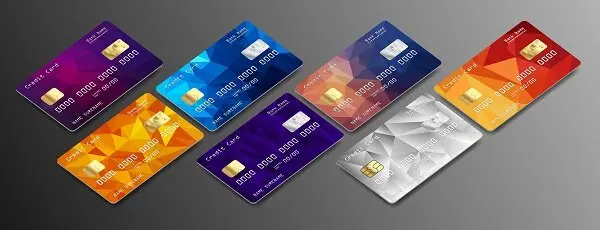How to Handle an Unexpected $500 Bill

- A Freedom Debt Relief survey surveyed Americans on credit card use and how they’d meet a $500 expense.
- The most common reason for using a credit card is everyday expenses.
- Strategies like debt consolidation and debt settlement could lighten your debt load.
Table of Contents
If you’ve got more credit card debt than you’d like, you’re not alone. The fact is, life is expensive and people use credit cards to pay for just about everything. It’s easy and convenient, and card companies know this. That’s why it’s so easy to carry a balance—which could mean your purchases wind up costing more.
The trick is to start building up some cash so you can cover a future unexpected expense without doing financial backflips. While you’re at it, give yourself a pat on the back for exploring ways to change your financial life for the better. Other people have paid down debt, and you can, too.
A recent Freedom Debt Relief survey took a look at how Americans use credit cards:
Household expenses like food, utilities, and gas were the biggest contributors—42%
Retail purchases—17%
Medical bills—13%
Other drivers of credit card debt varied by region:
According to the survey, men and women spent credit lines differently:
Let’s go through some solutions for debt and practical budgeting. We’ve got some savings tricks you can try. We’ll walk you through debt relief strategies and programs. Best of all, you can get started on making a $500 expense something that’s within your power to take care of.
1. Cultivate Some Like-Minded Friendships
One of the best ways to tweak your financial mindset is to find some friends with similar goals. For example, you want to build up your emergency savings and you’ve got a friend who wants to save for a down payment. Great! You both want to save money.
Having a friend who’s also saving money could lighten the burden of financial stress and boost your motivation. You can cheer each other on, swap your best saving tips, and celebrate the milestones. As you and your friend are high-fiving on DIY pizza or opening a high-yield savings account, you’re getting closer to being able to meet a $500 expense.
2. Start Saving
When it comes to saving, slow and steady wins the race. Don’t worry about how much you’ll save or when you’ll reach your end goal. Just start with a reasonable number. It might take some budgeting (it’s easy to make a budget even if you hate math) to arrive at your number. Maybe you can put aside $10 a week. In a year, you’ll have $520.
A really common and really good piece of financial advice is to turn on automatic savings account transfers. This simple action moves money into your savings account effortlessly. It saves you energy and spares you the temptation of spending it elsewhere. You can usually turn on automatic transfers through your banking website or app. Go to your account and search for features like automatic transfers or scheduled transfers that make it easy to save.
Many banks offer a 52-Week Savings Challenge. You start small, with $1 the first week, and increase your amount by $1 each week. At week 12, you’ll have $78 set aside. The Savings Challenge uses auto transfers and could help you build confidence in your ability to save consistently. If you hit a weekly amount that’s uncomfortable, change the settings but keep saving. If you can stay the course, you’ll have $1,378 at the end of the challenge. If you wind up with $500, that’s also a big win.
3. Use Credit Cards Cautiously
Some credit cards could tempt you into spending way too much through rewards programs. Rewards can be wonderful. But if you spend just to get the rewards, that could be a red flag. It should be the reverse: you buy something, and then in return for your purchase you get rewards, travel points, or cash back.
Of course, check which credit card will give you the best deal that fits your goals. Don’t let the rewards drive how you buy, so you don’t end up spending more than you would have.
4. Pay More Than the Minimum
You can pay down small debts more quickly or save on the interest you pay with one of two popular strategies: the debt snowball and debt avalanche methods. Debt snowball has you pay down small debts first so you get the rewards of quick wins and stay motivated. The debt avalanche focuses on debts with the highest interest first. This is the strategy that lets you save on interest costs.
Whichever method you pick, the process is similar. Take any extra money you have, and throw it at the debt you’re looking to pay off first—whether it’s the smallest balance or the debt with the highest interest. You pay the minimum on your other debts until your top-priority debt is paid off. Then you move on to the next target on your list. Rinse and repeat.
Looking for debt relief in Tulsa, OK or across the country? The first step is the most important one—learn more.
5. Get Debt Help
Depending on how much debt you’re dealing with, making more than the minimum payments each month might not be enough. Fortunately, there are many ways to get rid of debt with help from debt professionals. Some of these solutions include the following.
Debt consolidation
Debt consolidation means using a new loan to pay off multiple smaller debts. You might benefit from consolidating if you can get a new loan with a lower rate compared to what you pay now. Consolidating your debt could simplify your payment schedule and save you money on interest. It doesn’t solve your debt, but it might make it more manageable, especially if you can get a better interest rate.
Debt management plan (DMP)
Credit counseling agencies, which are typically nonprofit organizations, offer debt management plans where they will negotiate with your creditors to reduce your interest rates and fees. A debt management plan could save you money by getting you a lower rate. You’re still responsible for paying the full credit card debt in a timely manner (usually a few years), but you’re given extra guidance while you’re paying it down.
Debt settlement
When you work with a debt settlement company, they will negotiate with your creditors to reduce the total amount of debt you owe instead of just reducing your interest rate. This method could save you a lot of money on unsecured debt like credit card, personal loan, and medical debt. Companies like Freedom Debt Relief can help you decide whether debt settlement is right for your situation, or whether an alternative would suit you better.
Saving up $500 for an unexpected expense is absolutely possible. No matter what your current financial picture is, the good news is that you’re already looking into ways to improve your finances.
Insights into debt relief demographics
We looked at a sample of data from Freedom Debt Relief of people seeking debt relief during December 2025. The data provides insights about key characteristics of debt relief seekers.
FICO scores and enrolled debt
Curious about the credit scores of those in debt relief? In December 2025, the average FICO score for people enrolling in a debt settlement program was 593, with an average enrolled debt of $25,843. For different age groups, the FICO scores varied. For instance, those aged 51-65 had an average FICO score of 588 and an enrolled debt of $27,829. The 18-25 age group had an average FICO score of 556 and an enrolled debt of $17,051. No matter your age or debt level, it's reassuring to know you're not alone. Taking the step to seek help can lead you towards a brighter financial future.
Credit card debt - average debt by selected states.
According to the 2023 Federal Reserve Survey of Consumer Finances (SCF) the average credit card debt for those with a balance was $6,021. The percentage of families with credit card debt was 45%. (Note: It used 2022 data).
Unsurprisingly, the level of credit card debt among those seeking debt relief was much higher. According to December 2025 data, 88% of the debt relief seekers had a credit card balance. The average credit card balance was $16,010.
Here's a quick look at the top five states based on average credit card balance.
| State | Average credit card balance | Average # of open credit card tradelines | Average credit limit | Average Credit Utilization |
|---|---|---|---|---|
| Alaska | $18,904 | 7 | $24,102 | 81% |
| District of Columbia | $16,247 | 9 | $28,791 | 78% |
| Alabama | $13,021 | 9 | $27,261 | 78% |
| Oklahoma | $13,959 | 8 | $25,731 | 77% |
| Kentucky | $12,599 | 8 | $26,156 | 77% |
The statistics are based on all debt relief seekers with a credit card balance over $0.
Are you starting to navigate your finances? Or planning for your retirement? These insights can help you make informed choices. They can help you work toward financial stability and security.
Tackle Financial Challenges
Don’t let debt overwhelm you. Learn more about debt relief options. They can help you tackle your financial challenges. This is true whether you have high credit card balances or many tradelines. Start your path to recovery with the first step.
Show source
Author Information

Written by
Cole Tretheway
Cole is a freelance writer. He’s written hundreds of useful articles on money for personal finance publications like The Motley Fool Money. He breaks down complicated topics, like how credit cards work and which brokerage apps are the best, so that they’re easy to understand.

Reviewed by
Kimberly Rotter
Kimberly Rotter is a financial counselor and consumer credit expert who helps people with average or low incomes discover how to create wealth and opportunities. She’s a veteran writer and editor who has spent more than 30 years creating thousands of hours of educational content in every possible format.
Is debt settlement better than debt management?
The right solution for you depends on your situation. Debt management has a lower success rate than debt settlement, because many people can't afford the monthly payment. If you can safely afford to make your debt management plan payment, it could be a good solution, because it costs very little and doesn't hurt your credit much. If you have a financial hardship and can't afford to fully repay your debt, debt settlement may be a better way to go. It’s possible to get significant debt reduction with debt settlement.
When is a good time to refinance credit card debt?
Any time you're having trouble managing your debt payments is a good time to consider refinancing. However, two ideal times to refinance are: 1) when interest rates have fallen; or 2) when your credit score has improved significantly. Those are times when you'll have the greatest chance of lowering the interest expense on your debt by refinancing.
How does debt refinancing compare to a debt snowball?
If done correctly, refinancing could be a more financially efficient way of dealing with debt than the snowball method. Refinancing can reduce your interest expense, while the snowball method—paying off the smallest of your loans as quickly as possible and then moving on to the next smallest loan, and so on—isn't designed with that in mind.
Also, refinancing could simplify your debts more quickly than can the snowball method. The snowball method reduces your debts one by one.

